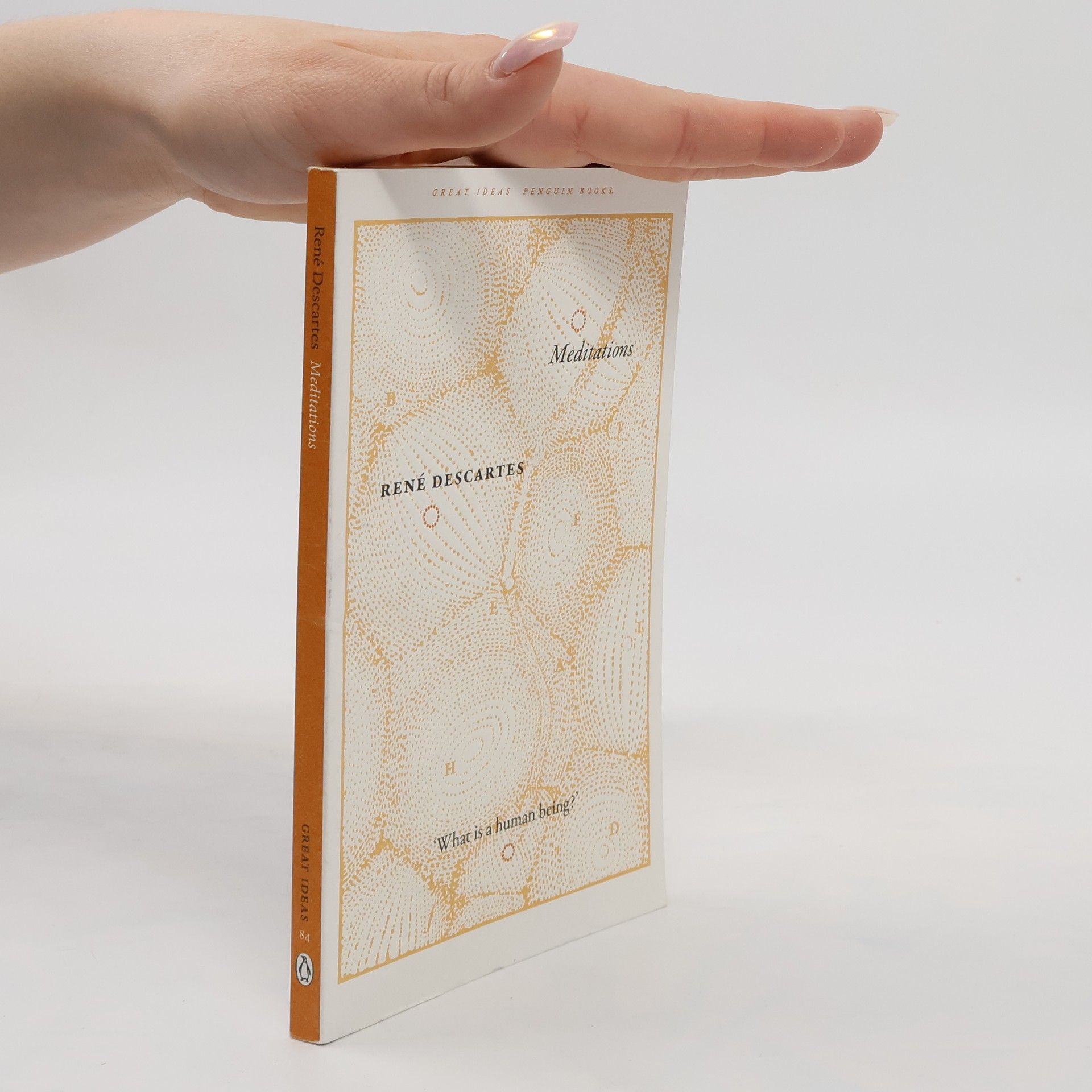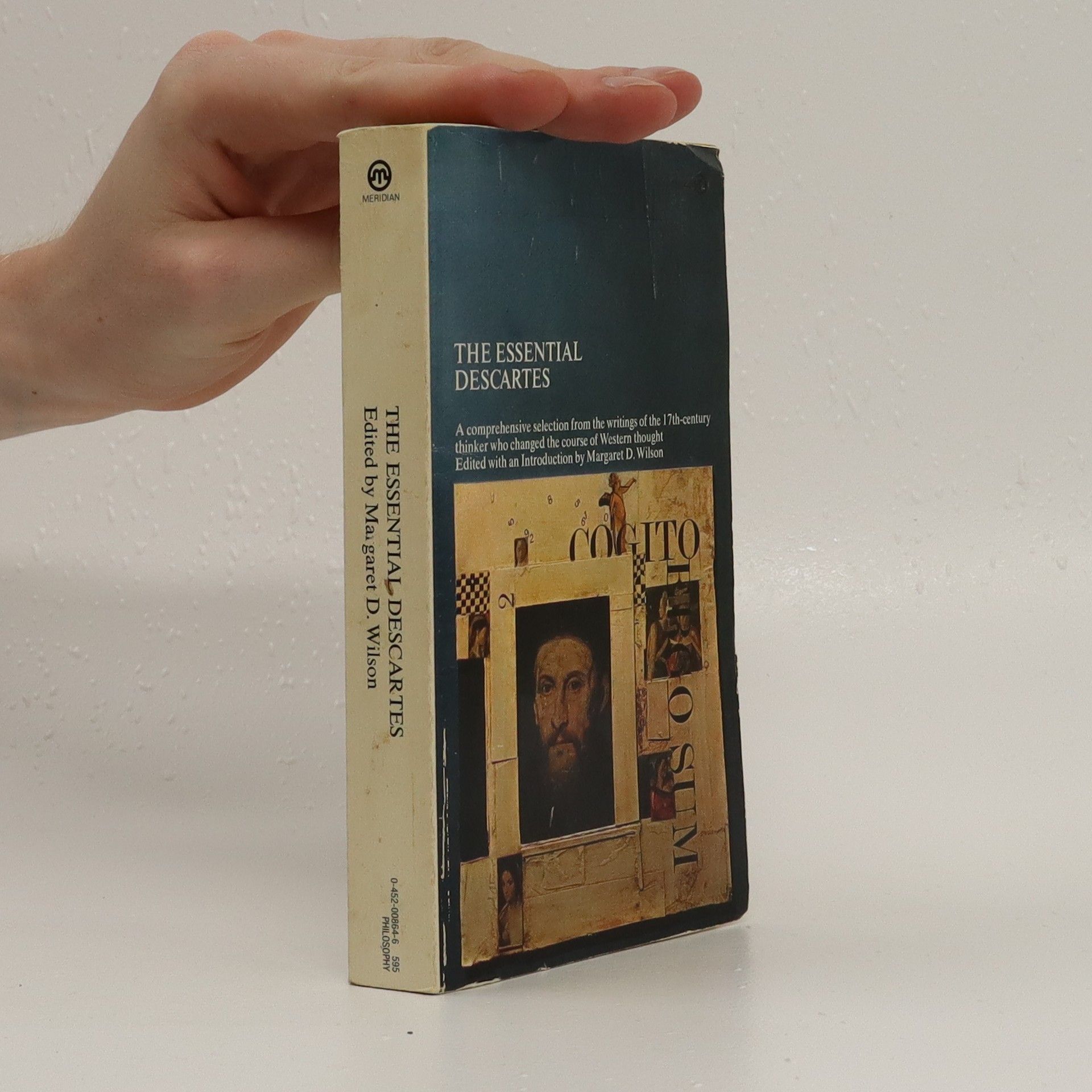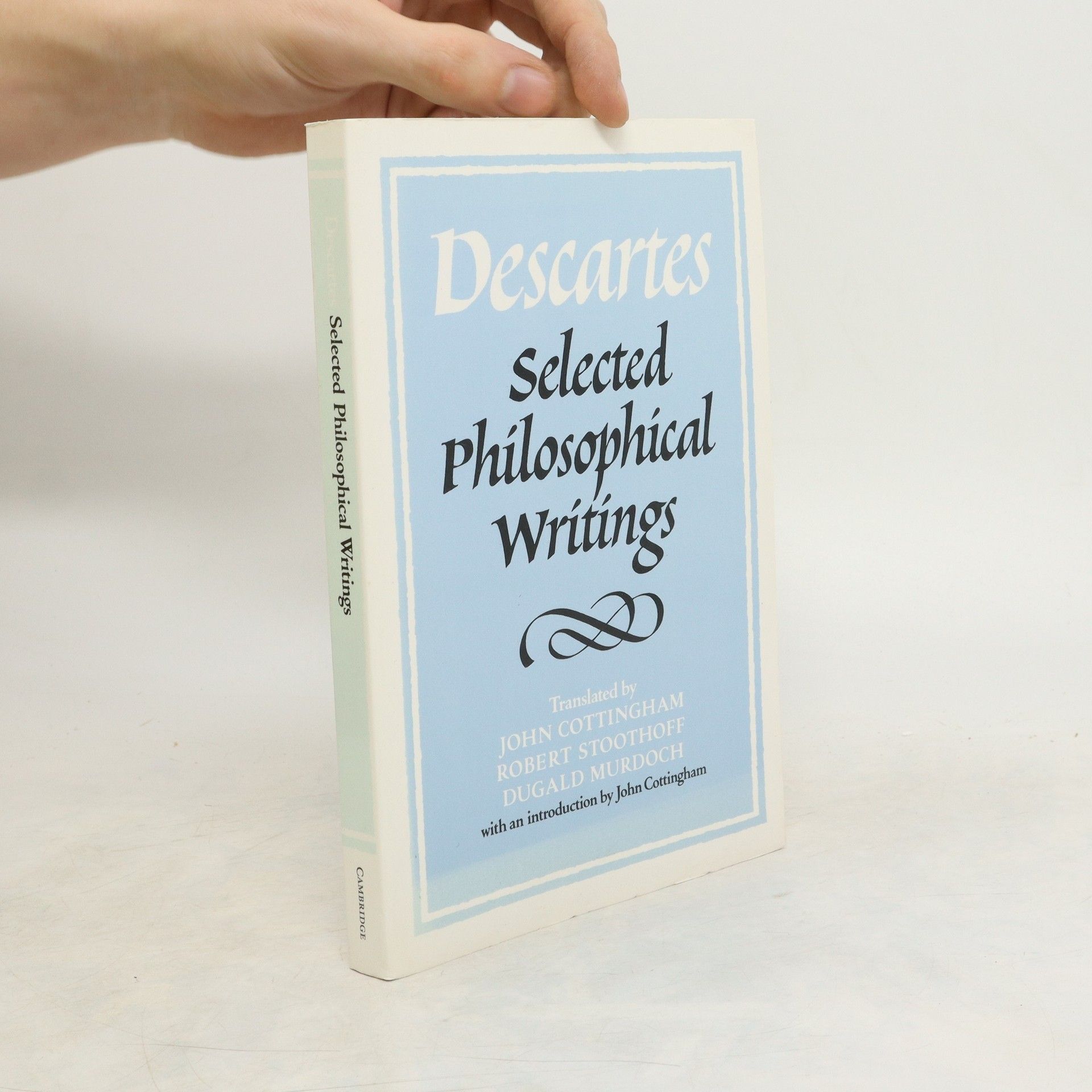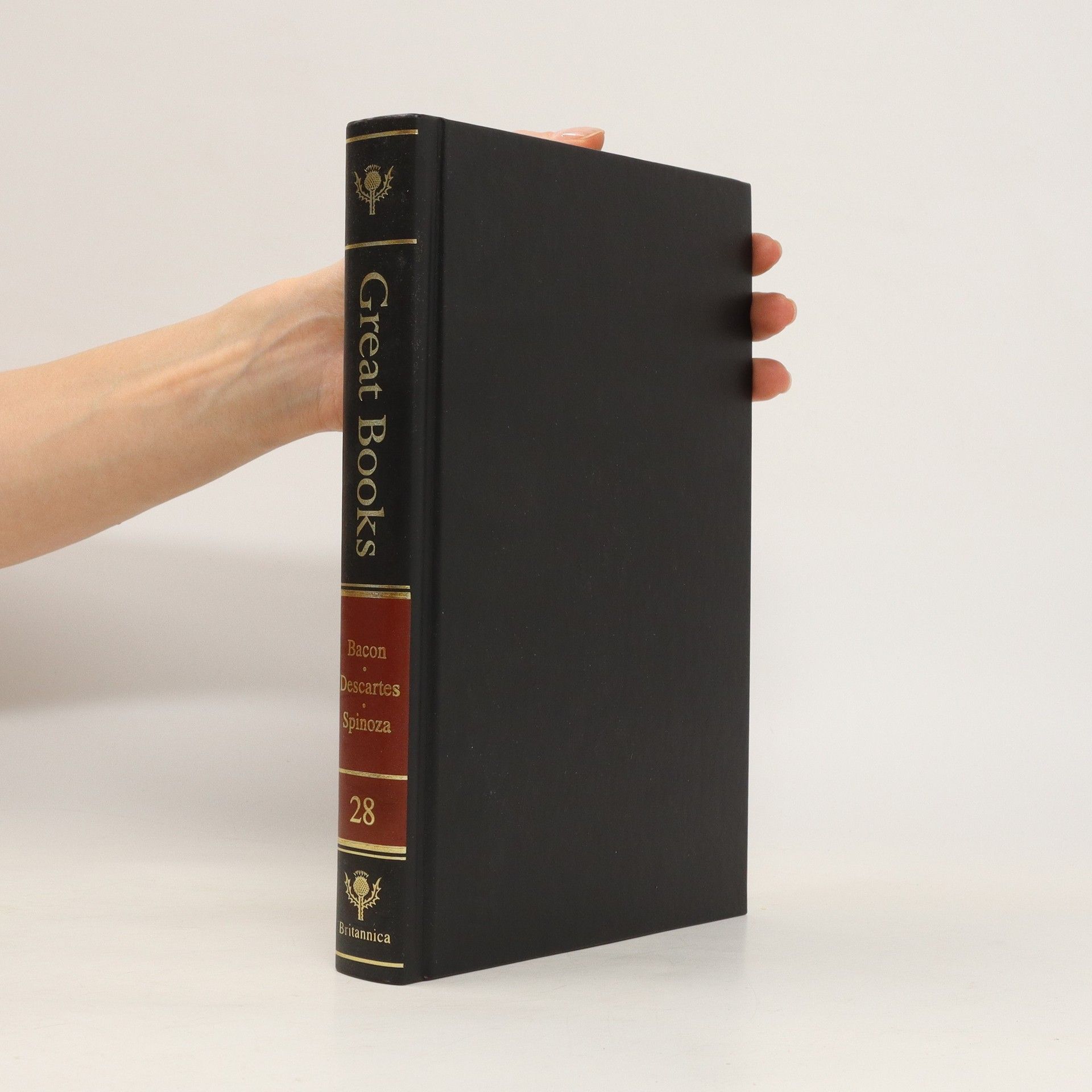René Descartes Books
This influential 17th-century thinker is heralded as the father of modern philosophy and a pivotal figure in the Scientific Revolution. His writings profoundly shaped subsequent Western thought, remaining essential subjects of study. In mathematics, he established analytic geometry, bridging algebra and geometry and laying groundwork for calculus. His philosophical inquiries into mind and mechanism foreshadowed later explorations into artificial intelligence, with his famous assertion "I think, therefore I am" encapsulating his pursuit of certainty.







This unabridged republication features the definitive English translation of a monumental classic in science, originally published in 1637. It has been hailed as "the greatest single step ever made in the progress of the exact sciences" and as a work that "remade geometry and made modern geometry possible." This volume marks the founding of modern analytical geometry, bridging geometry with algebra and analysis. Descartes systematically classified curves and demonstrated the algebraic solutions of geometric problems, while his geometric interpretation of negative quantities laid the groundwork for later concepts of continuity and the theory of functions. The third book offers significant contributions to the theory of equations. This edition includes the complete Smith-Latham translation of Descartes' three Problems: the Construction of which Requires Only Straight Lines and Circles; On the Nature of Curved Lines; and On the Construction of Solid and Supersolid Problems. Each page of the translation is interleaved with a facsimile of the original 1637 French text, complete with Descartes' original illustrations. Additionally, 248 footnotes provide clarifications and further bibliographic resources.
The new translation offers a fresh perspective by relying solely on the Latin text, distinguishing it from the older version by Haldane and Ross, which utilized a composite text from both French and Latin sources. This edition highlights significant differences in the French version through detailed footnotes, providing readers with a clearer understanding of the original Latin text.
Meditations on First Philosophy
With Selections from the Objections and Replies
This authoritative translation by John Cottingham of the Meditations is taken from the much acclaimed three-volume Cambridge edition of the Philosophical Writings of Descartes. It is based on the best available texts and presents Descartes' central metaphysical writings in clear, readable modern English.
The essential Descartes
- 384 pages
- 14 hours of reading
In The Essential Descartes, the passion, precision, and deep humanity of this avant-garde 17th-century thinker are presented in a selection from his most profound writings, including his Discourse on Method, Meditations on First Philosophy, and Rules for the Direction of the Mind.
Meditations
- 144 pages
- 6 hours of reading
Widely regarded as the father of modern Western philosophy, Descartes sought to look beyond established ideas and create a thought system based on reason. In this work, he meditates on doubt, the human soul, God, truth and the nature of existence itself.
The Meditations on First Philosophy is one of Descartes's best-known works and one of the most influential philosophical texts ever written, this treatise offers Descartes' metaphysical views on the relationship between the mind and thought, the nature of reality and how accumulated knowledge and our experiences affect us. First published in 1641, the work consists of six meditations on the following the dubiousness of thoughts and assumptions - as Descartes puts it, 'what can be called into doubt'; the nature of the human mind; the existence of God; truth versus falsehood; the essence of material things and, finally, the difference between mind and body. For anyone interested in the study of philosophy, this is an essential and illuminating read.This volume also includes the great philosopher's Discourse on the Method, a brilliant discussion of reasoning and experimentation which helped establish the foundations of the scientific process, a selection of enlightening essays from his Principles of Philosophy and a classic introduction by Frank Sewall.
Descartes. Meditations on First Philosophy
- 214 pages
- 8 hours of reading
Descartes's Meditations on First Philosophy remains one of the most widely studied works of Western philosophy. This volume is a refreshed and updated edition of John Cottingham's bestselling 1996 edition, based on his translation in the acclaimed three-volume Cambridge edition of The Philosophical Writings of Descartes. It presents the complete text of Descartes's central metaphysical masterpiece, the Meditations, in clear, readable modern English, and it offers the reader additional material in a thematic abridgement of the Objections and Replies, providing a deeper understanding of how Descartes developed and clarified his arguments in response to critics. Cottingham also provides an updated introduction, together with a substantially revised bibliography, taking into account recent literature and developments in Descartes studies. The volume will be a vital resource for students reading the Meditations, as well as those studying Descartes and early modern philosophy.
One of the foundation-stones of modern philosophy Descartes was prepared to go to any lengths in his search for certainty—even to deny those things that seemed most self-evident. In his Meditations of 1641, and in the Objections and Replies that were included with the original publication, he set out to dismantle and then reconstruct the idea of the individual self and its existence. In doing so, Descartes developed a language of subjectivity that has lasted to this day, and he also took his first steps towards the view that would eventually be expressed in the epigram Cogito, ergo sum ("I think, therefore I am"), one of modern philosophy's most famous—and most fiercely contested—claims. The first part of a two-volume edition of Descartes' works in Penguin Classics, the second of which is Discourse on Method & Related Writings. For more than seventy years, Penguin has been the leading publisher of classic literature in the English-speaking world. With more than 1,700 titles, Penguin Classics represents a global bookshelf of the best works throughout history and across genres and disciplines. Readers trust the series to provide authoritative texts enhanced by introductions and notes by distinguished scholars and contemporary authors, as well as up-to-date translations by award-winning translators.
Rene Descartes, the "father" of modern philosophy, is without doubt one of the greatest thinkers in history: his genius lies at the core of our contemporary intellectual identity. Breaking with the conventions of his own time and suffering persecution by the Church as a consequence, Descartes in his writings - most of which are philosophical classics - attempted to answer the central questions surrounding the self, God, free-will and knowledge, using the science of thought as opposed to received wisdom based on the tenets of faith. This edition, the most comprehensive one-volume selection of Descartes' works available in English, includes his great essay, "Discourse on Method".



